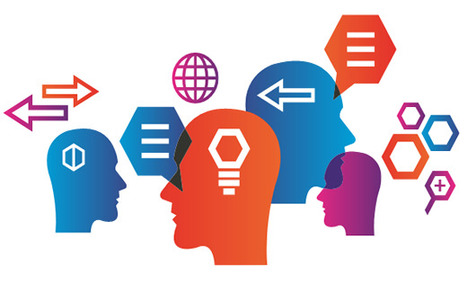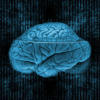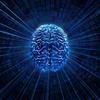Scientists have located a specific set of neurons that indicate how time passes, confirming that the brain plays an essential role in how we experience the passage of time.
Get Started for FREE
Sign up with Facebook Sign up with X
I don't have a Facebook or a X account


 Your new post is loading... Your new post is loading...
 Your new post is loading... Your new post is loading...
Famed neurologist Oliver Sacks has been a lifelong lover of the music of Johann Sebastian Bach, and thanks to a team at Columbia University (including WSF alum Joy Hirsch) he was able to put his favorite composer to the test. In a clip from NOVA, Bach is pitted against Ludwig van Beethoven, while a brain scanner analyzed the results.
Imagine you wake up one morning and can't read. Your eyes work, but the letters on the page have turned into squiggles. They make no sense. Now meet Howard Engel, a writer of detective stories, who has this condition, but amazingly, has found a way to trick his brain to almost read again
Cognitive scientists have good news for linguistic purists terrified about the corruption of their mother tongue.Using an artificial language in a carefully controlled laboratory experiment, a team from the University of Rochester and Georgetown University has found that many changes to language are simply the brain's way of ensuring that communication is as precise and concise as possible.
Dustin Stansbury, Researcher for the Vision Science Group of UC Berkeley speaks at the 2011 Technology Horizons Fall Research Exchange.
UCLA researchers have for the first time measured the activity of a brain region known to be involved in learning, memory and Alzheimer's disease during sleep. They discovered that this part of the brain behaves as if it's remembering something, even under anesthesia, a finding that counters conventional theories about memory consolidation during sleep.
Julien Cuyeu's curator insight,
September 24, 2014 9:51 AM
My brain is still active even when I'm asleep, thats crazy.
You have (I assume) a brain. And you use it when you build a PowerPoint slide. Lets make another assumption. Your audience is using theirs. In this scenario we have a conflict: What your brain is t...
Some people think that the next big innovation in the coming decades is not going to involve the Internet because we can actually connect computers to the human mind. Therefore, Michio Kaku says this brain-to-brain communication would involve not just the exchange of information, but also the transmission of emotions and feelings, "because these are also part of the fabric of our thoughts."
Researchers show just how hackable your accounts can be using a brain-computer interface. Via Andrea Graziano
Scientists have unraveled how our brain cells encode the pronunciation of individual vowels in speech. The discovery could lead to new technology that verbalizes the unspoken words of people paralyzed by injury or disease.
The sexual objectification of women isn’t just in your head—it’s in everyone’s. A new study finds that our brains see men as people and women as body parts.
In The Power of Habit: Why We Do What We Do in Life and Business, acclaimed journalist Charles Duhigg investigates the neuroscience of habit and explains how habit loops are formed in the brain.
Brain scans of karate experts show that there are subtle differences in certain areas of brain that probably enables them to punch harder from a very close range. |
Humans form beliefs asymmetrically; we tend to discount bad news but embrace good news. This reduced impact of unfavorable information on belief updating may have important societal implications, including the generation of financial market bubbles, ill preparedness in the face of natural disasters, and overly aggressive medical decisions. Here, we selectively improved people’s tendency to incorporate bad news into their beliefs by disrupting the function of the left (but not right) inferior frontal gyrus using transcranial magnetic stimulation, thereby eliminating the engrained “good news/bad news effect.”
Habits are behaviors wired so deeply in our brains that we perform them automatically. This allows you to follow the same route to work every day without thinking about it, liberating your brain to ponder other things, such as what to make for dinner.
However, the brain's executive command center does not completely relinquish control of habitual behavior.
Neuroscientists have traced circuits in part of the rat brain and find no sign of a top-down hierarchy. The distributed network of the Internet may be a better model, they say. Via Flavio Bernardotti 
Teresa Levy's comment,
October 25, 2012 8:31 PM
more like a pyramid. People did it and threw away the key
University of Toronto psychologist Keith Oatley presents data that seems to show that reading novels improves one’s ability to understand and empathize with others. He demonstrates using brain imaging, that the parts of the brain that are activated when reading stories are the same as those that we use in social interactions. So perhaps the next time you don’t see eye to eye with somebody, the two of you should dive into a good book.
From
phys
Complex brains evolved much earlier than previously thought, as evidenced by a 520-million year old fossilized arthropod with remarkably well-preserved brain structures.
From
io9
The neural pathways that make up the brain arguably represents the most fiendishly complex electrical system in the cosmos, but what if not every brain is actually electrical?
That's right, kids are really good at imitation. Even a 13-month-old child can remember an event a week after a single exposure. Even when you don't realize it, your kids are watching the world around you. What you allow into your child's brain influences their expectations about the world, which in turn influences not only what they are capable of perceiving, but their very behavior. Via Ian Banyard, Deborah McNelis, M.Ed 
Ian Banyard's comment,
October 1, 2012 4:23 AM
Thanks to all of you who have visited my Wired4Success scoop.it page and shared this brilliant video. have a great week!
Scientists have connected 250 years of organic chemical knowledge into one giant computer network -- a chemical Google on steroids.
The computer, smartphone or other electronic device on which you are reading this article has a rudimentary brain—kind of.* It has highly organized electrical circuits that ... Via Sandeep Gautam, Tom Perran
Education is the key to successful therapeutic intervention with people who suffer from alcohol addiction.
Scientists have discovered that a protein in semen acts on the female brain to prompt ovulation, and is the same molecule that regulates the growth, maintenance, and survival of nerve cells.
The brain is a self-cleaning machine. A previously unknown plumbing system blasts out waste by flushing it with the brain’s cleaning solution — cerebrospinal fluid. |




























